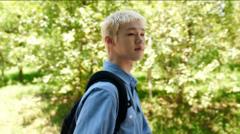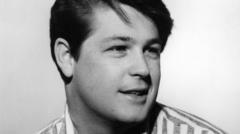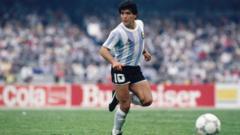A deep sorrow permeates Argentina as Pope Francis is laid to rest, with many wondering why he never returned to his birthplace. Speculations point to his desire to avoid political entanglements despite invitations from various leaders throughout his papacy.
The Unanswered Question: Why Pope Francis Never Returned to Argentina

The Unanswered Question: Why Pope Francis Never Returned to Argentina
As Argentina mourns the passing of Pope Francis, reflections on his absence from his homeland raise questions about political repercussions.
As Argentines process the death of Pope Francis, a wave of mourning is compounded by an unsettling sentiment: the unanswered question of why their beloved pontiff never visited Argentina during his papacy, despite being invited by numerous presidents and local religious leaders. The late pope's absence has sparked discussions among parishioners, igniting a sense of unease among those uncomfortable with the political implications of his potential visit.
Laura Aguirre, a 50-year-old bakery cashier in Buenos Aires, expressed her disappointment, stating, “I have to be honest, I didn’t like that he never came to Argentina.” This sentiment was echoed by many gathered at the Mass honoring the first Latin American pope, conducted just hours after his passing. Outside the Basílica de San José de Flores, situated close to his childhood home, citizens pondered the reasons behind his decision to forgo a visit to his native land.
Experts suggest that Pope Francis may have deliberately stayed away from Argentina to avoid being politicized or used for the gain of various political figures. Sebastián Morales, 37, articulated this concern, stating, “He didn’t want any president to wrap themselves in his cloak, to say ‘I’m the one who brought the pope’.”
Throughout his papacy, Francis maintained a complicated relationship with Argentine presidents. His opposition to President Cristina Fernández de Kirchner during debates over same-sex marriage was notable, although their relationship improved once he became pope. His criticism of former President Mauricio Macri's right-leaning policies and strong opposition to President Alberto Fernández’s push for legalizing abortion only added layers to his complicated interactions with Argentine politics.
Most recently, President Javier Milei, who had previously disparaged the pope, publicly apologized before meeting with Francis at the Vatican last year. Milei is now expected to attend the pontiff’s funeral on Saturday, a gesture of respect that underscores the tension that often shadowed their exchanges.
As Argentina lays Pope Francis to rest, the reverberating feelings of both loss and uncertainty linger, reflecting on a historic figure whose reluctance to return home remains a poignant topic of discussion among the faithful.






















